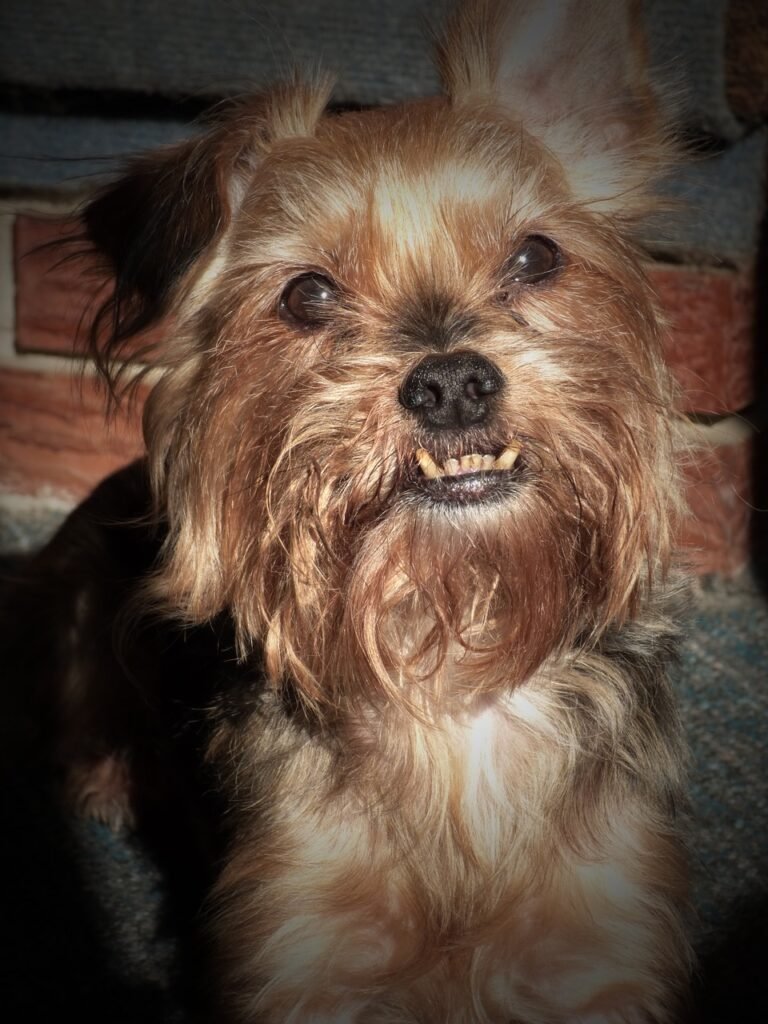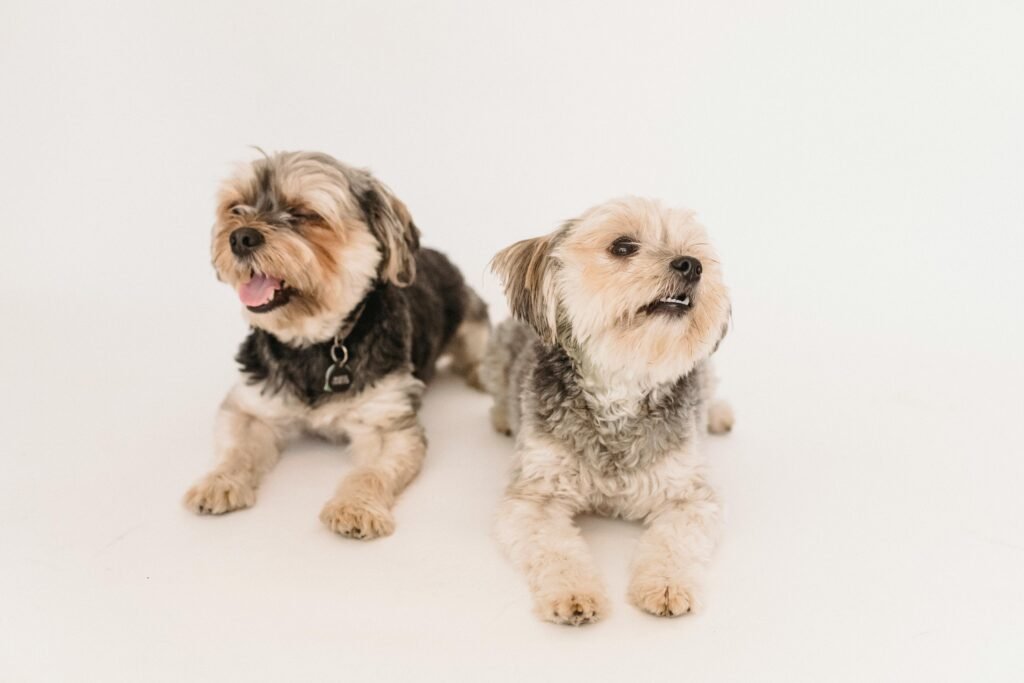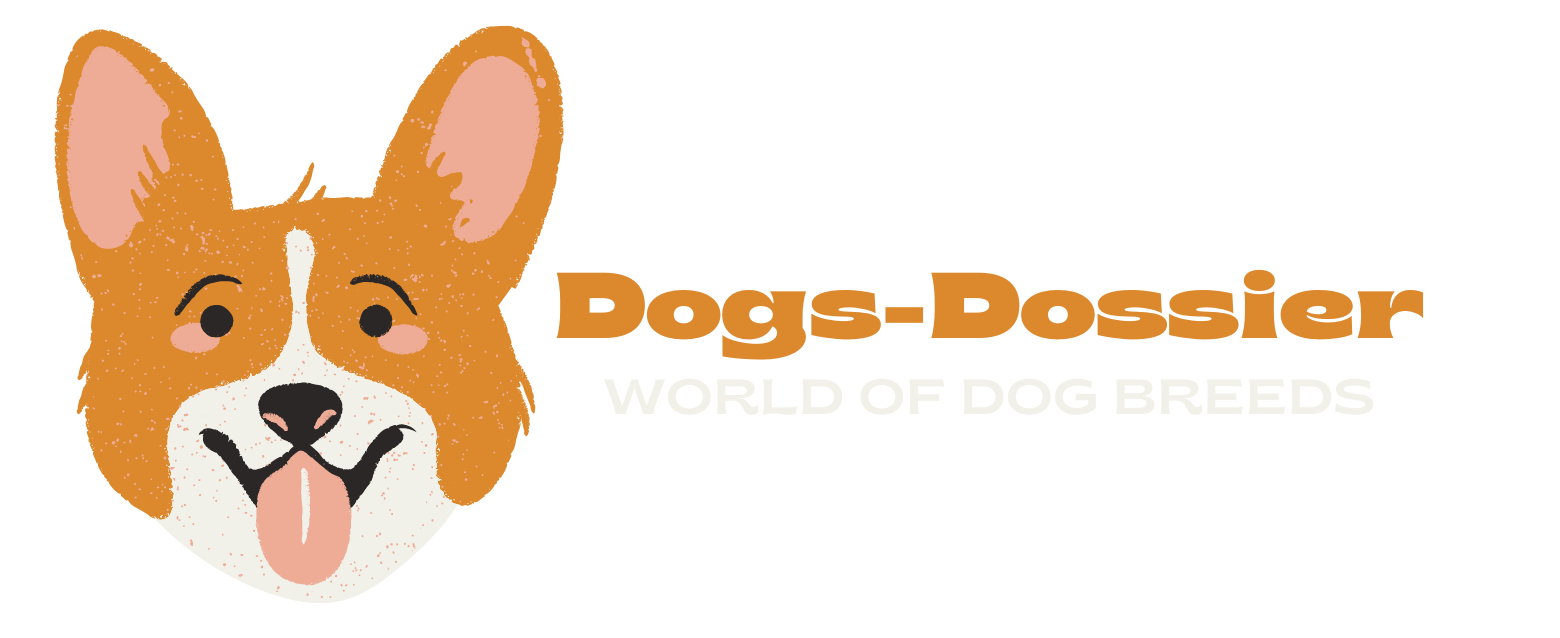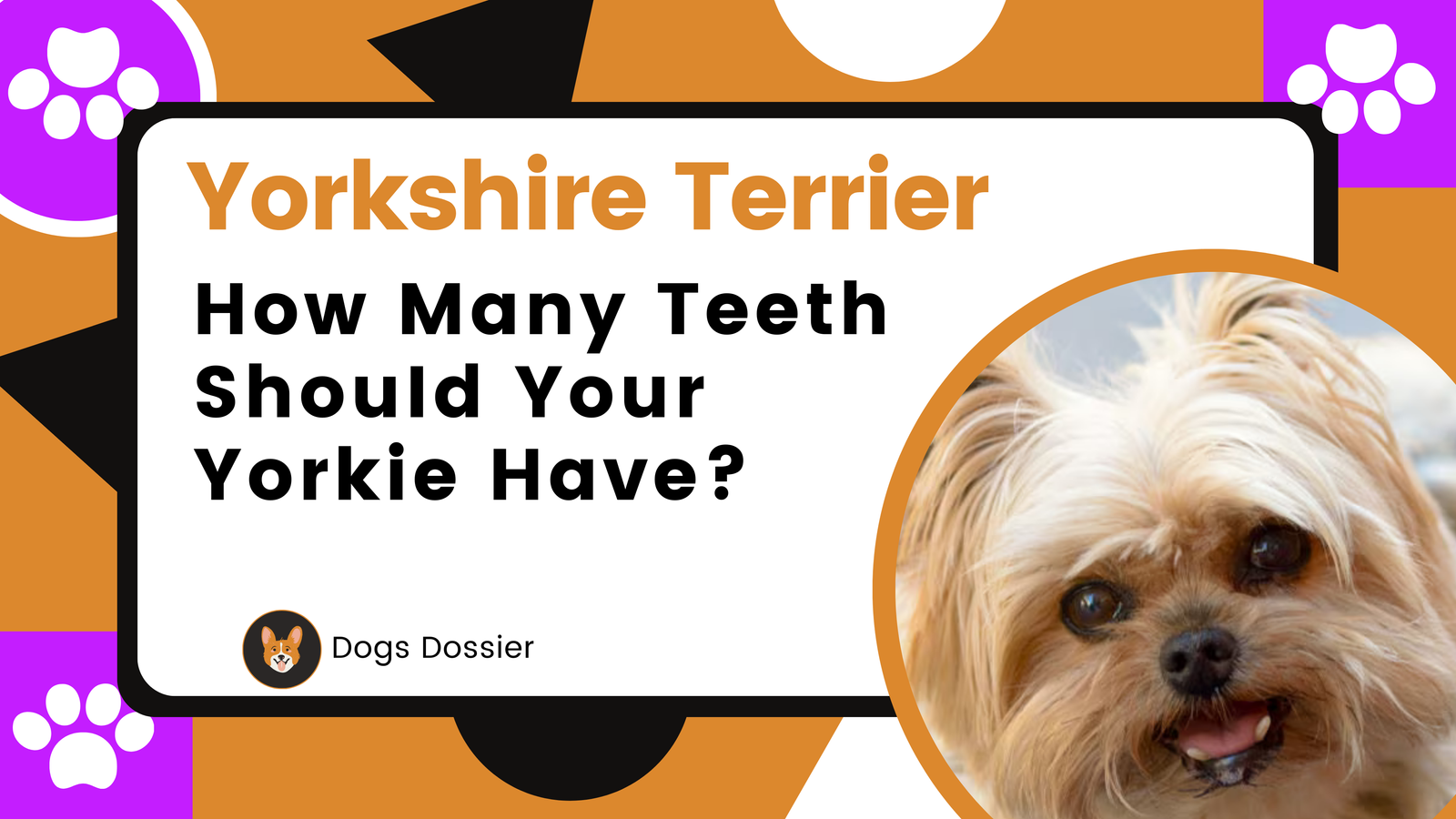How Many Teeth Should Your Yorkie Have? A Complete Guide to Yorkie Dental Health and Tooth Count
When it comes to the well-being of your Yorkie, dental health is as crucial as their diet and exercise.
Understanding the dental anatomy of your Yorkie can help you ensure they maintain a healthy and happy life.
But just how many teeth does a Yorkie have, and what should you know about their dental development and care? Let’s dive in!

Yorkie Dental Development
Puppy Teeth (Deciduous Teeth)
Number of Puppy Teeth
Yorkie puppies are born without teeth, but by the time they are about eight weeks old, they develop a full set of 28 deciduous teeth, also known as puppy teeth or milk teeth. These teeth include 12 incisors, four canines, and 12 premolars.
The premolars assist in shearing and grinding food. These teeth are temporary and will eventually be replaced by permanent adult teeth as the puppy matures.
The process of teething can be uncomfortable for the puppy, often leading them to chew on objects to relieve the discomfort.
Timeline of Teething in Yorkies
Teething in Yorkies follows a well-defined timeline that starts shortly after birth. Around three to four weeks of age, the first set of teeth, known as deciduous or puppy teeth, begin to emerge.
By eight weeks, a Yorkie puppy will have a complete set of 28 puppy teeth. The teething process can be uncomfortable, and puppies often chew on various objects to alleviate the discomfort. This initial phase of teething is crucial for the transition from nursing to solid food.
The next significant stage occurs between four to six months, when the puppy teeth start to fall out, making way for the permanent adult teeth. By six to eight months, the Yorkie should have a full set of 42 adult teeth, which includes 12 incisors, four canines, 16 premolars, and 10 molars.
During this transition, it’s essential to monitor your Yorkie’s dental health closely and ensure they have appropriate chew toys to support the teething process and prevent damage to the new adult teeth. Regular vet checkups during this period can help identify any issues early and ensure a smooth transition from puppy to adult teeth.
How Many Teeth Does a Yorkie Have?
A Yorkie typically has 42 teeth once they reach adulthood, consisting of 12 incisors, four canines, 16 premolars, and 10 molars.
This total number of teeth is essential for various functions such as grasping, tearing, shearing, and grinding food.
Maintaining proper dental care, including regular brushing and professional cleanings, is crucial for ensuring your Yorkie’s dental health and overall well-being.

Adult Teeth (Permanent Teeth)
Number of Adult Teeth
Adult Yorkies have a total of 42 permanent teeth. This includes 20 teeth in the upper jaw (maxilla) and 22 teeth in the lower jaw (mandible).
Transition from Puppy to Adult Teeth
The transition from puppy to adult teeth in Yorkies is a critical phase in their development, typically starting around four months of age. During this period, the 28 deciduous teeth begin to loosen and fall out, making way for the permanent adult teeth.
This process can sometimes be uncomfortable for the puppy, causing them to chew on objects to relieve the discomfort. It’s important for owners to provide appropriate chew toys and monitor their puppy’s chewing habits to protect their developing teeth.
By six to eight months, a Yorkie should have a full set of 42 adult teeth, consisting of 12 incisors, four canines, 16 premolars, and 10 molars. The adult teeth are larger and stronger, designed to last a lifetime with proper care.
Yorkie Teeth Structure
Types of Teeth
Incisors
Yorkies have 12 incisors, six on the top and six on the bottom. These small teeth are located at the front of the mouth and are used primarily for grasping and nibbling.
Canines
There are four canine teeth in total, one on each side of the upper and lower jaws. These sharp, pointed teeth are essential for tearing food.
Premolars
Yorkies have 16 premolars, eight on the top and eight on the bottom. These teeth are located behind the canines and are used for shearing and grinding food.
Molars
Finally, Yorkies have 10 molars, four on the top and six on the bottom. These are the largest teeth in the mouth and are used for grinding food into smaller, digestible pieces.
Function of Each Type of Tooth
Each type of tooth in your Yorkie’s mouth has a specific function, from cutting and tearing food with incisors and canines to grinding it down with premolars and molars. Proper dental health ensures these teeth can perform their roles effectively.
Common Dental Issues in Yorkies
Tooth Loss
Causes of Tooth Loss
Tooth loss in Yorkies can be caused by several factors, primarily related to poor dental hygiene and underlying health conditions.One of the most common causes is periodontal disease, a serious gum infection that damages the soft tissue and, if left untreated, can destroy the bone supporting the teeth.
Dental trauma, such as an injury or accident, can also lead to tooth loss. Additionally, Yorkies are prone to dental decay, where cavities form due to the buildup of plaque and tartar, leading to the deterioration of the tooth structure.
Genetic predispositions can also play a role, making some Yorkies more susceptible to early tooth loss. Retained deciduous teeth, which fail to fall out, can crowd the mouth and lead to infections and loss of the adult teeth. Regular dental care, including brushing and professional cleanings, is essential to prevent these issues and maintain your Yorkie’s dental health.
Prevention of Tooth Loss
Preventing tooth loss involves regular dental care, including brushing, professional cleanings, and providing dental chews to help maintain healthy teeth and gums.
Dental Diseases
Periodontal Disease
Periodontal disease is a common issue in Yorkies, characterized by the inflammation and infection of the tissues surrounding the teeth. This condition can lead to tooth loss if not treated promptly.
Tooth Decay
Tooth decay, or dental caries, is less common in dogs than in humans but can still affect Yorkies. It occurs when bacteria in the mouth produce acids that erode the enamel and dentin of the teeth.
Tartar and Plaque Buildup
Plaque is a sticky film of bacteria that forms on the teeth. If not removed, it hardens into tartar, which can cause gum disease and tooth loss.

Maintaining Your Yorkie’s Dental Health
Regular Brushing
Choosing the Right Toothbrush and Toothpaste
Choosing the right toothbrush and toothpaste for your Yorkie is crucial for maintaining their dental health. For the toothbrush, opt for one with soft bristles and a small head designed specifically for dogs.
These brushes are gentle on your Yorkie’s gums and can easily reach all areas of their mouth. Finger brushes are also a good option, especially for smaller dogs, as they provide better control and can be less intimidating for your pet.
When it comes to toothpaste, always choose a product formulated for dogs. Human toothpaste contains ingredients like fluoride and xylitol, which can be harmful to dogs if ingested.
Dog toothpaste comes in flavors that appeal to pets, such as poultry or peanut butter, making the brushing experience more enjoyable for your Yorkie. Look for enzymatic toothpaste, which helps break down plaque and tartar more effectively.
How to Brush Your Yorkie’s Teeth
Brushing your Yorkie’s teeth is essential for their dental health. Start by choosing a comfortable spot and use a dog-specific toothbrush and toothpaste.
Begin by letting your Yorkie sniff and lick the toothpaste to get accustomed to the taste. Gently lift their lip to expose their teeth and, using a circular motion, brush the outer surfaces of the teeth and gum line.
Focus on the back teeth where plaque tends to accumulate. Be gentle and patient, making sure to praise and reward your Yorkie throughout the process. Aim to brush their teeth at least three times a week, gradually working up to daily brushing for optimal dental health.
Professional Dental Cleanings
Importance of Veterinary Dental Checkups
Veterinary dental checkups are crucial for maintaining your Yorkie’s oral health. These checkups allow the vet to detect early signs of dental issues such as plaque buildup, gum disease, and tooth decay, which might not be visible to the naked eye.
Regular professional cleanings help remove tartar that brushing alone can’t eliminate. Early detection and treatment of dental problems can prevent more serious health issues, such as infections that could spread to other parts of the body.
Additionally, vets can provide guidance on proper at-home dental care tailored to your Yorkie’s specific needs. Scheduling routine dental checkups ensures your Yorkie maintains healthy teeth and gums throughout their life.
What to Expect During a Professional Cleaning
During a professional cleaning, your vet will remove plaque and tartar from your Yorkie’s teeth, polish them, and may take X-rays to check for underlying issues.
Dental Chews and Toys
Dental chews offer numerous benefits for your Yorkie’s oral health. Firstly, they help to reduce plaque and tartar buildup, promoting healthier teeth and gums.Chewing on these treats stimulates saliva production, which can naturally wash away food particles and bacteria from the mouth.
Additionally, the act of chewing can provide mental stimulation and alleviate boredom, reducing the likelihood of destructive chewing behaviors.
Some dental chews are also designed to freshen your Yorkie’s breath, leaving them with a pleasant scent. Regular use of dental chews as part of a dental care routine can contribute to your Yorkie’s overall dental hygiene and well-being.
Selecting Safe and Effective Chews and Toys
Choose dental chews and toys that are safe for small dogs. Avoid hard chews that can break teeth and opt for products specifically designed to improve dental health.
FAQs: Yorkies Teeth
How can I tell if my Yorkie has dental problems?
Look for signs such as bad breath, difficulty eating, pawing at the mouth, swollen or bleeding gums, and loose teeth. Regular vet checkups can also help identify dental issues early.
What should I do if my Yorkie loses a tooth?
If your Yorkie loses a tooth, it’s important to consult your vet. They can determine if the tooth loss is due to an underlying issue and provide appropriate treatment.
How often should I brush my Yorkie’s teeth?
Ideally, you should brush your Yorkie’s teeth daily. If this isn’t possible, aim for at least three times a week to help maintain their dental health.
Are dental chews really effective for Yorkie dental health?
Yes, dental chews can be effective in reducing plaque and tartar buildup. However, they should not replace regular brushing and professional dental care.
Can Yorkies get cavities like humans do?
While cavities are less common in dogs, Yorkies can still develop them. Regular dental care and vet checkups can help prevent and identify cavities early.
Conclusion
Maintaining your Yorkie’s dental health is essential for their overall well-being. By understanding the number and types of teeth your Yorkie has, recognizing common dental issues, and following proper dental care routines, you can help ensure your furry friend enjoys a healthy, happy life.





